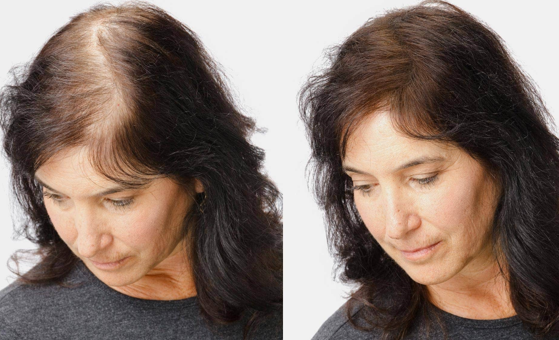Female Hair Transplant
Not sure what is causing your hair loss? When you talk to an expert and get yourself properly examined, you will have a clear vision on the best course of treatment.
Hair loss has been a concern for both men and women throughout history, but women are often depicted in folklore and art with long, beautiful hair. However, when women experience significant hair loss, it can be a distressing issue that affects their confidence and mental well-being. Therefore, it’s crucial for women to consider hair transplantation if they face severe hair loss.
In women, the causes of hair loss often include factors like Traction Alopecia, Cicatricial Alopecia, trauma, and genetic alterations leading to hormonal imbalances. It’s important to note that excessive pulling, as seen in traditional braided hairstyles among Indian women, can contribute to Traction Alopecia. While traumatic hair loss can often be reversed, hair loss due to inflammation can be a more complex issue, requiring medical intervention.

Women typically turn to solutions like Minoxidil 5% foam, which has demonstrated positive results. However, it’s worth noting that women should exercise caution when considering medications that could interfere with hormonal changes, especially if their menstrual cycle is ongoing, as these medications may have side effects.
The field of treating hair loss in both men and women is one of the oldest medical specialties globally. Thanks to remarkable advancements in medical therapies, hair transplant techniques, and hair cosmetics, hair treatments have become highly successful and effective. Unlike men, women tend to experience diffuse thinning rather than noticeable baldness on the scalp, which follows a distinct pattern.
There are numerous causes of hair loss in women, including:
1. Androgenetic alopecia is primarily triggered by genetic factors.
2. Hair loss can also result from medication use or hormonal imbalances, such as thyroid disorders or menstrual irregularities.
3. Pregnancy is a known factor that can lead to hair loss in women.
4. Conditions like PCOD/PCOS (Polycystic Ovary Syndrome) can contribute to hair loss.
5. Cancer treatments and iron deficiency are other factors linked to hair loss.
6. Stress is a common contributor to hair loss among both men and women.
7. Even weight loss can sometimes lead to hair loss.
Hair transplant procedures for women are considered advantageous because their donor area hair quality is generally better compared to men. As a result, the transplanted grafts tend to have a longer lifespan. While both FUT and FUE procedures are suitable, FUE has shown slightly more effectiveness. For women seeking hair regrowth, Hair Free and Hair Grow stands out as the top choice for achieving desired results promptly.
